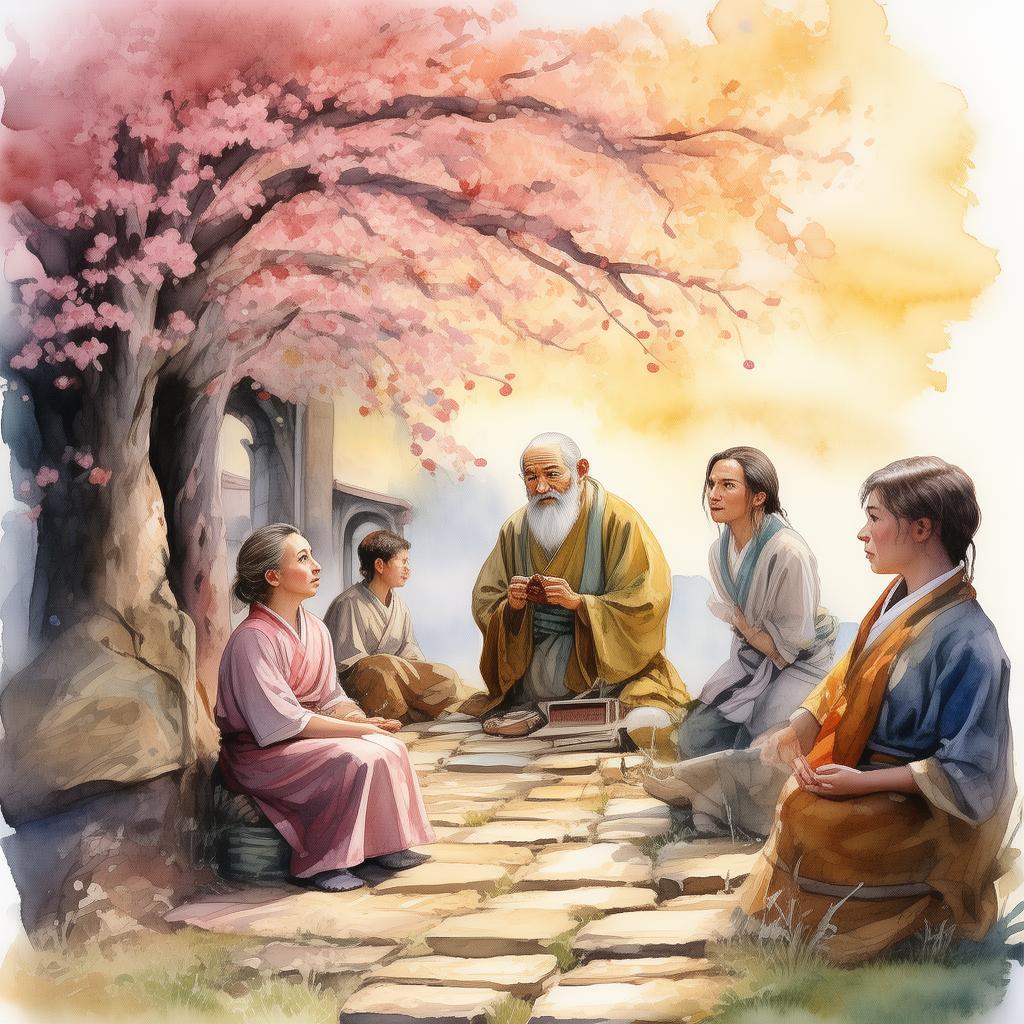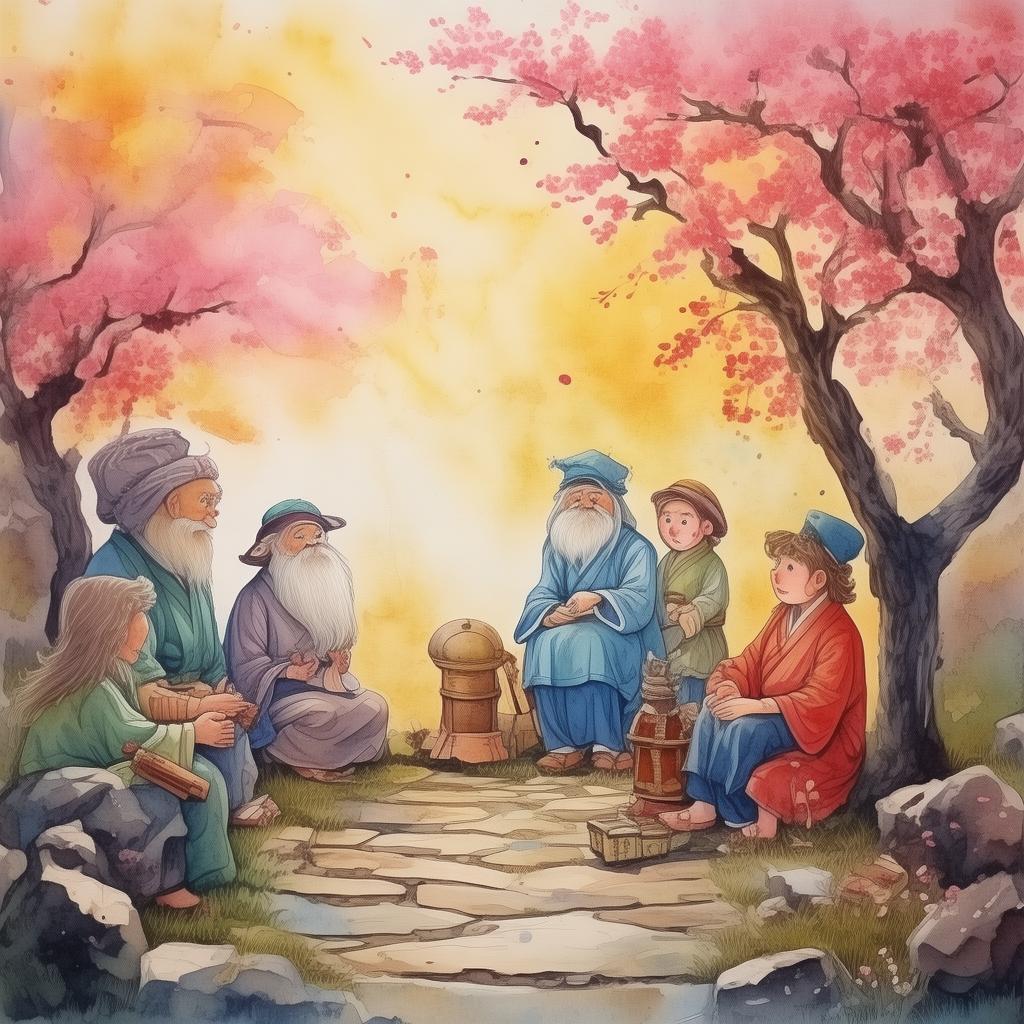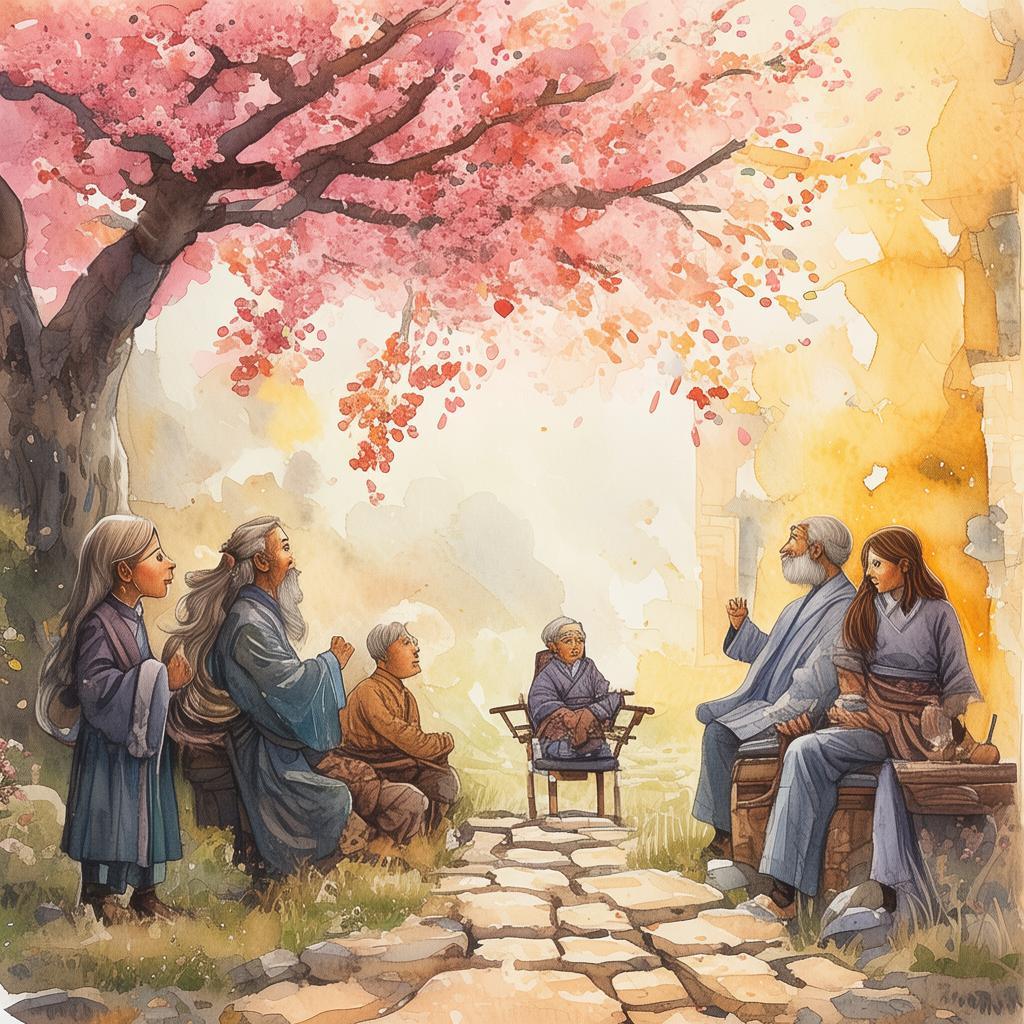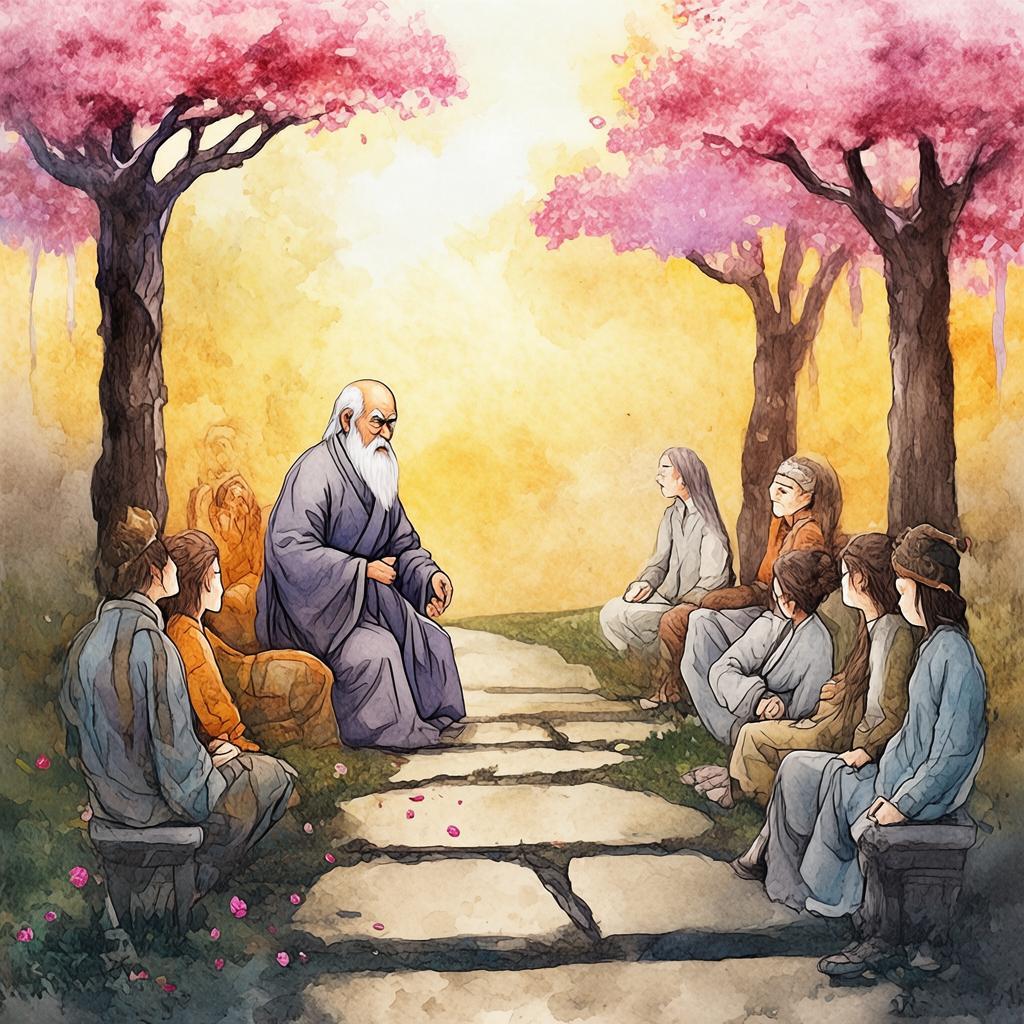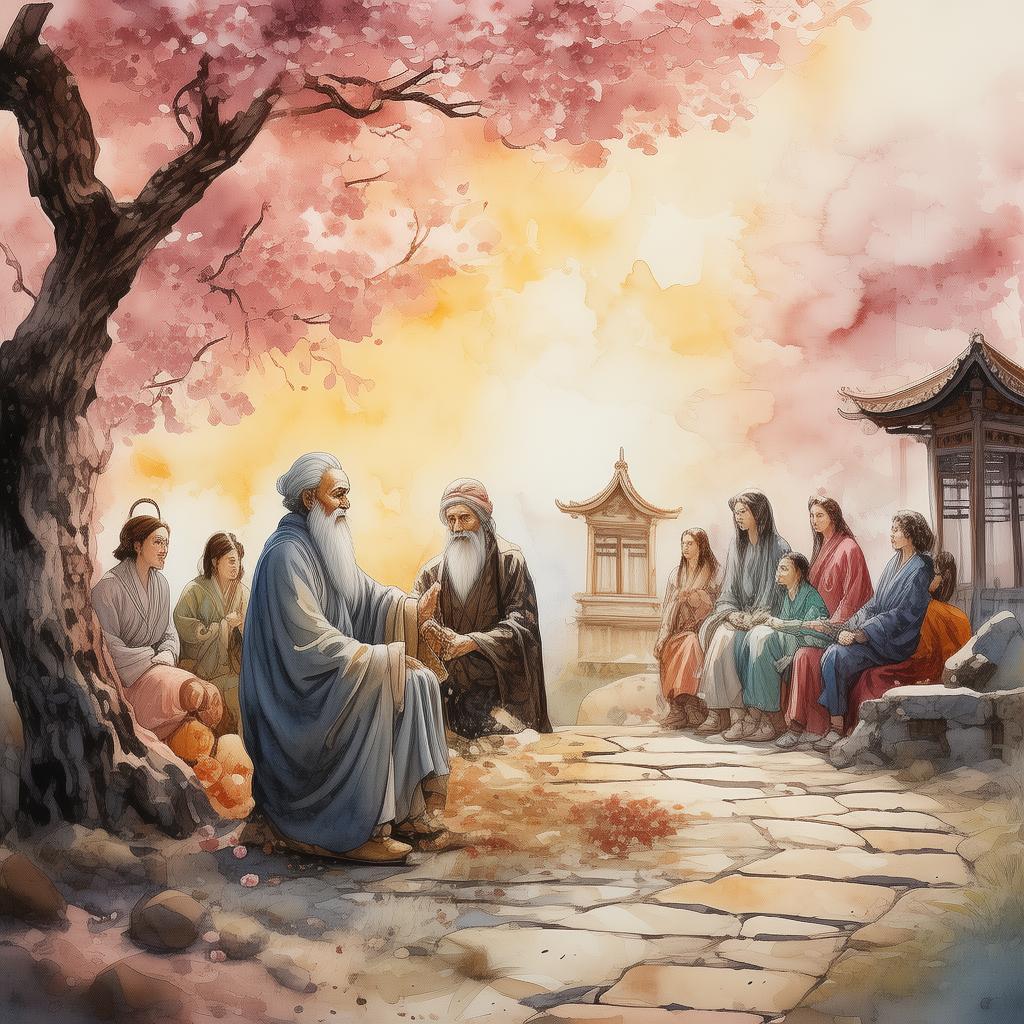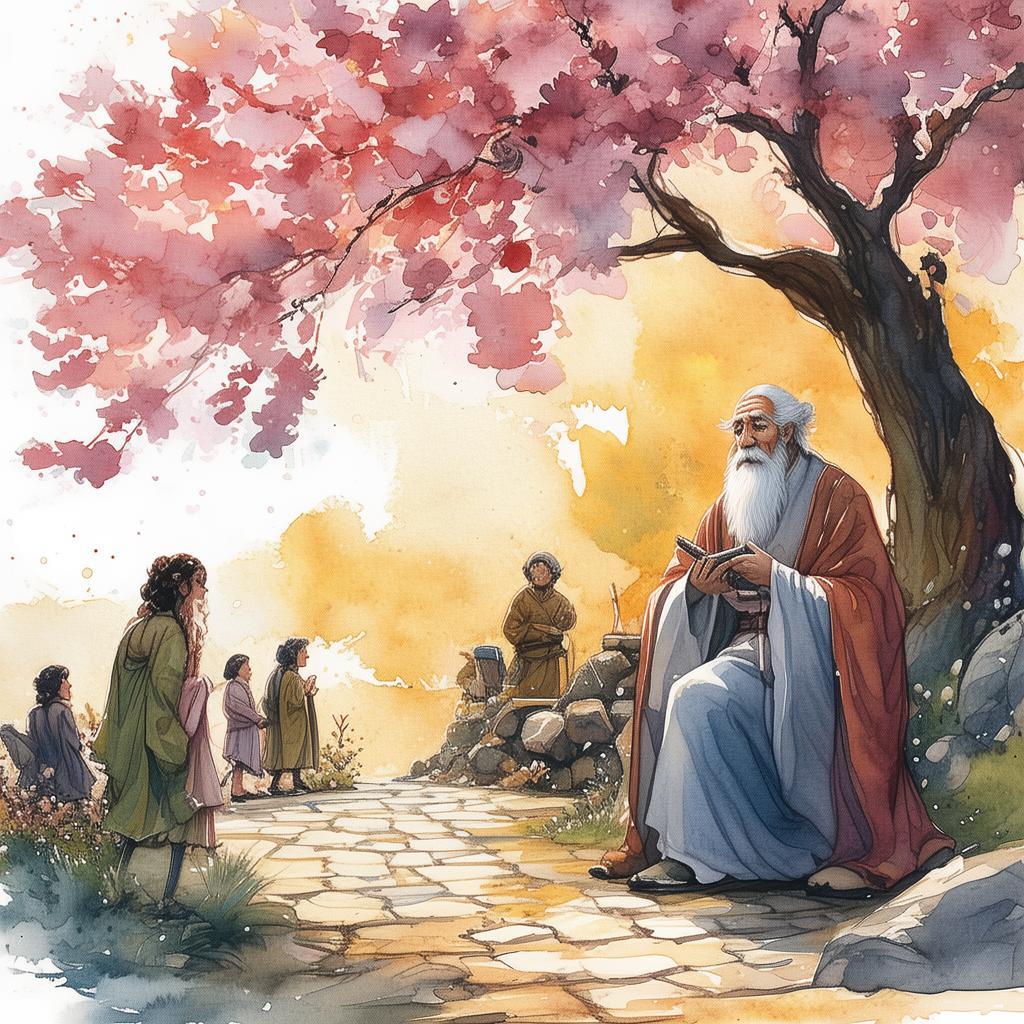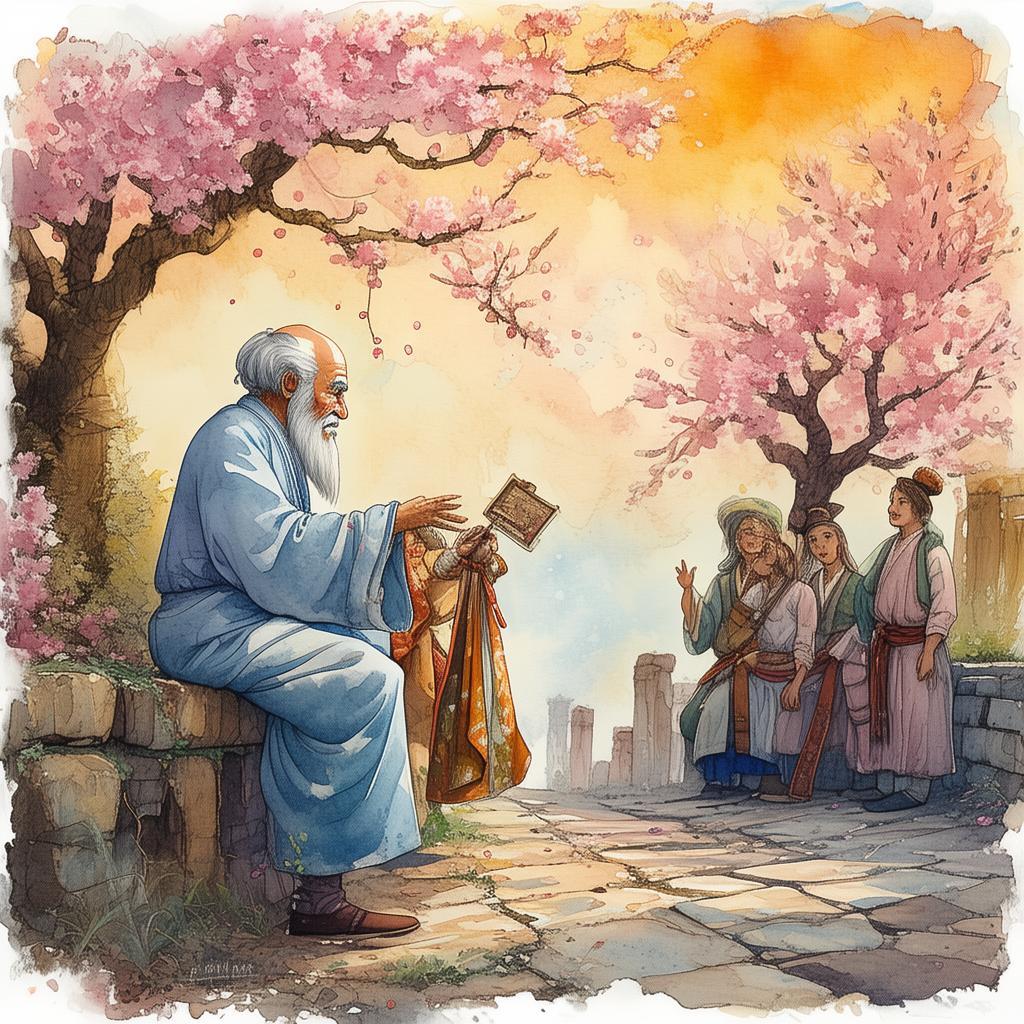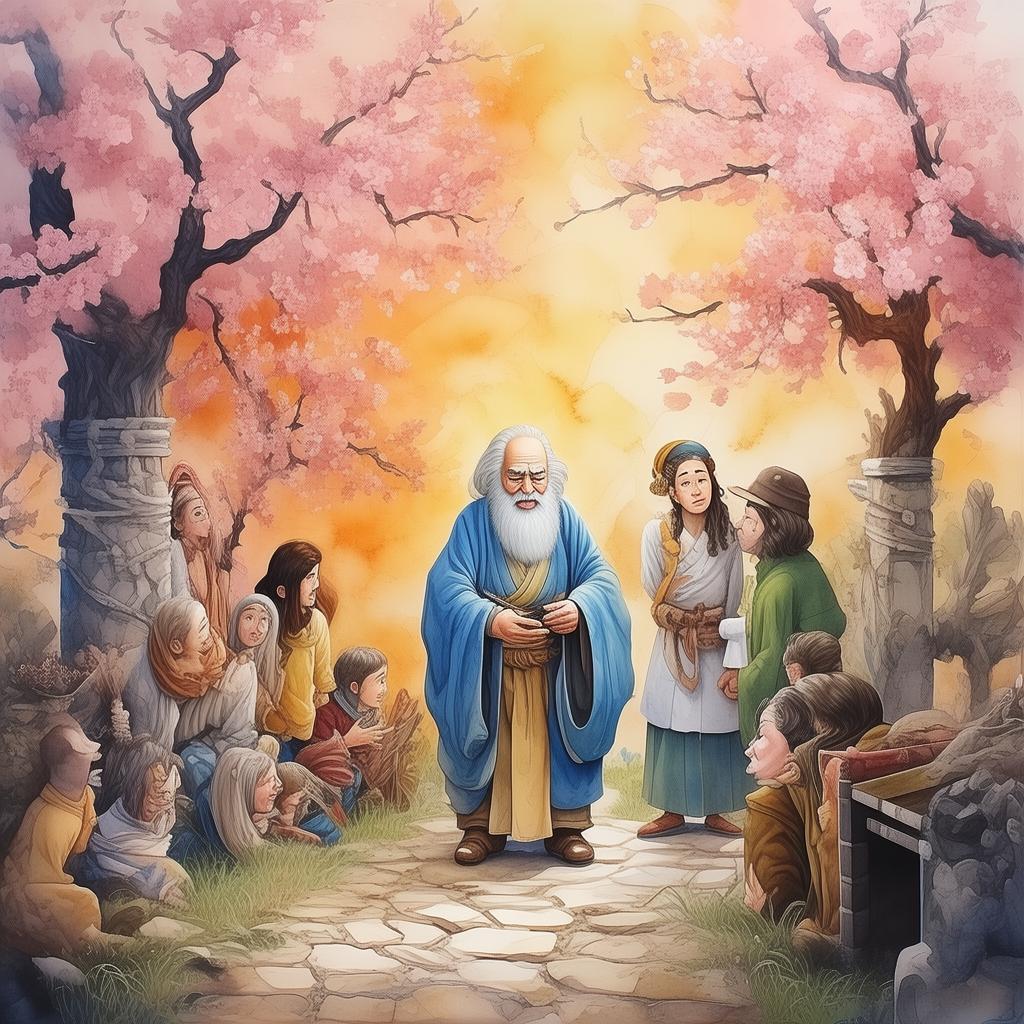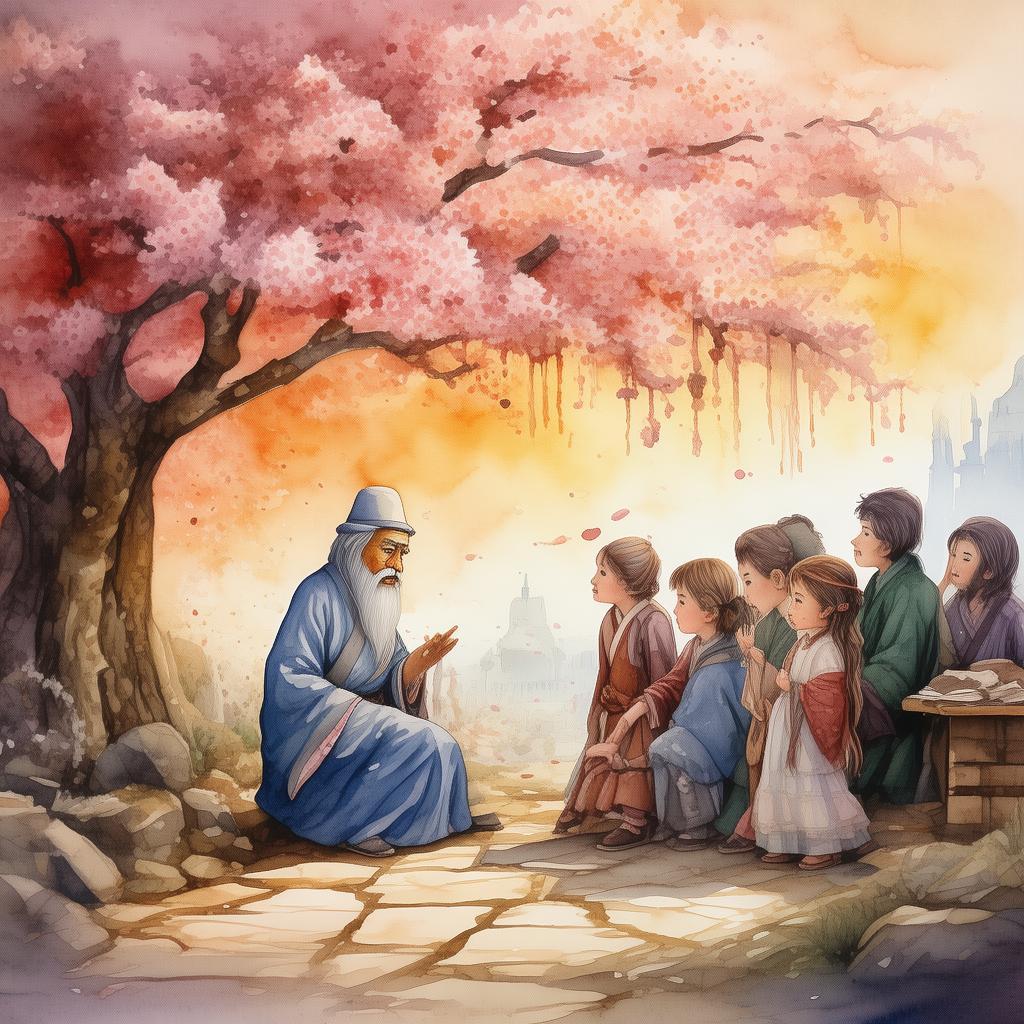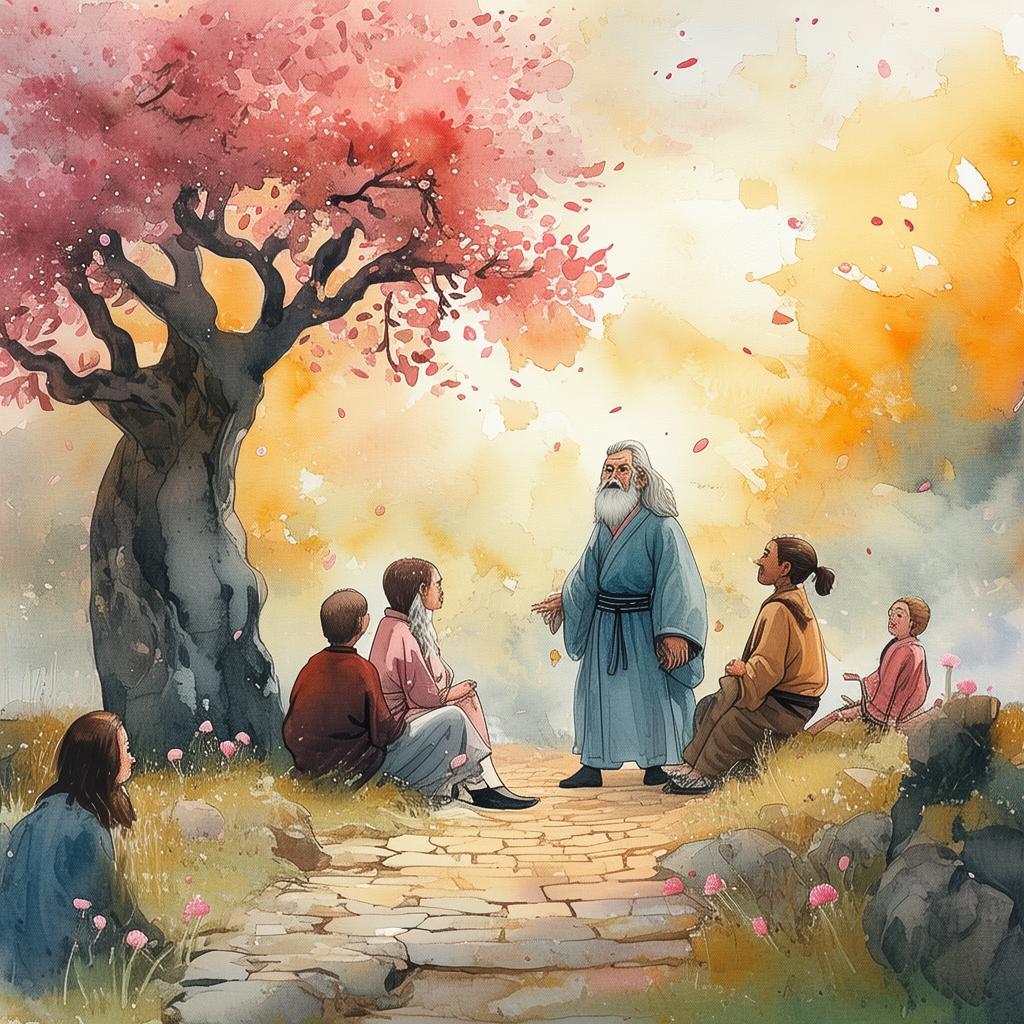The Lament of the Silent Marshes
In the heart of the ancient kingdom of Liang, nestled between rolling hills and an endless expanse of the silvery Yandu River, lay a vast, untamed marsh known as the Silent Marshes. It was a place where the whispers of the past mingled with the cries of the birds, and where legends whispered through the tall reeds. It was said that in the marshes, time stood still and secrets long forgotten could be uncovered by those who dared to delve deep enough.
One spring morning, a young scholar named Yu Jing, who had a penchant for the obscure and ancient, stumbled upon a tattered scroll while sorting through his late grandfather's belongings. The scroll, yellowed with age and speckled with dust, seemed to have been written in an ancient script that even Yu Jing could barely decipher. Yet, there it was, a single idiom that stood out to him:
“Tianming chu zao, yu zao liu zhu.”
Yu Jing, though not knowing it at first, knew that these were no ordinary words. He pored over them, seeking the meaning behind them, until it struck him like lightning. The idiom, translated to “When the great sky appears, the jade lily grows,” referred to a time when the natural order was restored and harmony was achieved.
Determined to uncover the true meaning of the idiom, Yu Jing decided to set off for the Silent Marshes. The idiom spoke of something far more profound than mere nature's rebirth; it spoke of balance and harmony, of a time when the land itself held the secret to peace.
He packed his belongings into a sturdy bamboo basket and set out, guided only by the map of the marshes that his grandfather had once drawn with meticulous care. As he journeyed deeper into the marshes, the silence was almost oppressive, broken only by the calls of birds and the rustling of reeds. Yu Jing found himself following a winding path, his shoes soaked with marsh water and his clothes heavy with mud.
Days turned into weeks, and Yu Jing's journey became increasingly perilous. He encountered treacherous swamps, wild animals, and the ever-present threat of the marsh's hidden dangers. Yet, he pressed on, driven by the promise of uncovering the truth of the idiom.
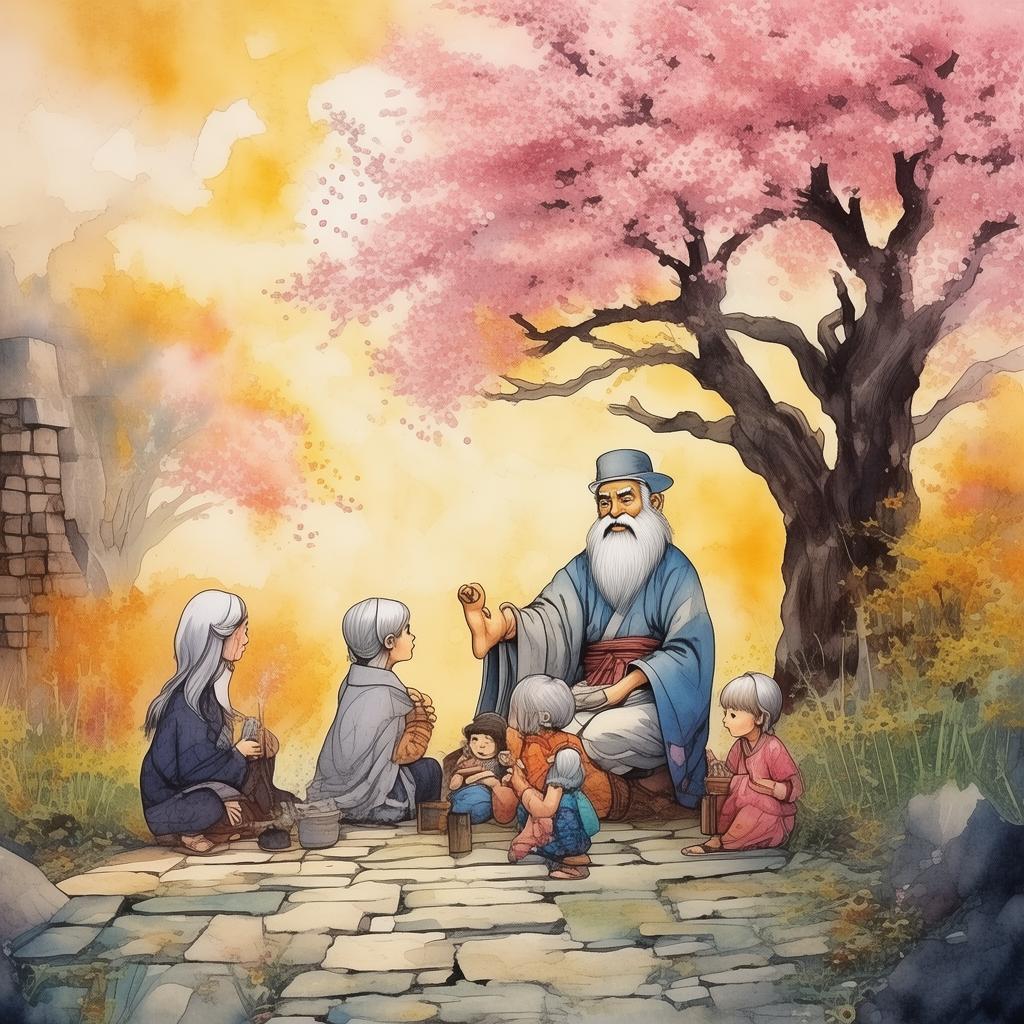
One night, as the full moon bathed the marshes in its silver light, Yu Jing came upon an ancient, overgrown pagoda. He followed the faint glow from within and discovered a room filled with scrolls, each one a relic from the past. In one corner of the room, a single scroll stood out, adorned with intricate carvings that told a tale of the Silent Marshes.
The scroll revealed a story of a great drought that had once threatened the kingdom, and of how the king, desperate for a solution, had traveled to the Silent Marshes in search of the ancient wisdom that could bring the rains. It was there that the king discovered the true meaning of the idiom, not in the form of a natural event, but in the heart of the marshes, where harmony between nature and the people was restored.
As Yu Jing read the scroll, he realized that the king had been right. The balance between the marshes and the kingdom was the key to prosperity and peace. But, it was a delicate balance that required the respect and care of all.
With the dawn of understanding, Yu Jing left the pagoda, carrying the scroll with him. He returned to the kingdom, determined to share his knowledge with the king and the people. The idiom, which had once been a mystery, was now a symbol of hope and harmony, and the Silent Marshes were once again a place of tranquility.
And so, the idiom "Tianming chu zao, yu zao liu zhu" became more than a phrase from the past; it became a living legacy, a reminder of the interconnectedness of all life and the importance of maintaining the delicate balance between man and nature.
Yu Jing's journey, once a quest for the truth behind an ancient idiom, had led him to become a guardian of the Silent Marshes, a protector of the harmony that had once been threatened. The story of his quest was passed down through generations, a testament to the enduring power of ancient wisdom and the eternal quest for balance and understanding.
✨ Original Statement ✨
All articles published on this website (including but not limited to text, images, videos, and other content) are original or authorized for reposting and are protected by relevant laws. Without the explicit written permission of this website, no individual or organization may copy, modify, repost, or use the content for commercial purposes.
If you need to quote or cooperate, please contact this site for authorization. We reserve the right to pursue legal responsibility for any unauthorized use.
Hereby declared.
